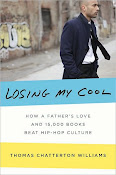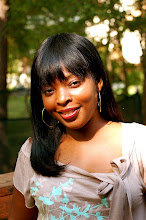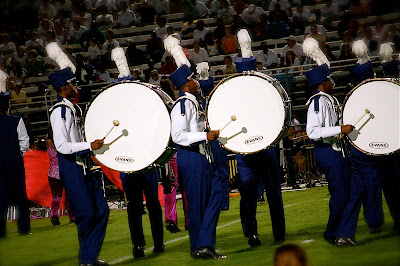 EDITOR'S NOTE:
EDITOR'S NOTE: I originally wrote this piece for my writer friend, Eisa Eulen, author of the novel,
Crystelle Mourning, and the purveyor of
EisaUlen.com, where she pens a thoughtful, poignant blog about books and writings by and about people of color. I wasn't in the best place when I wrote this piece, and though today my writing career is going well, there are still days when I feel like this...
By DENENE MILLNERThree more hours to go, and I’ll hear the bus rush down the street, signaling that my time is… up. The giggly girls will tumble up the brick stairs, backpacks askew, twists flying, serving up juicy kisses and demanding sweet treats—Golden Oreos, strawberries, and peanut butter and marshmallow sandwiches (folded, not cut, in half). That’s what they’ll want—that, and my undivided attention. There will be no more time for my other babies—the characters in my books.
The clock ticks.
I am struggling.
Full of doubt.
And wondering, yet again, why I don’t just give this writing thing up and get a real job somewhere—like Starbucks or the Georgia State Road and Tollway Authority. I could make lattes or collect dollars, and stop thinking about words already.
And why not?
I’ve got 12 books with my name on them, including my latest, Hotlanta, the first in a three-book series I’ve written with my co-author, Mitzi Miller, and three more books on the way. I’ve also written for an eclectic mix of magazines—from Essence to Parenting to Money to Men’s Fitness—during a writing career that’s spanned more than two decades. Yet today, I’m feeling like my job as an African-American author is one of the most thankless, underappreciated, low-paying jobs on the planet.
What’s got me in a tizzy? A prominent book editor’s quote in a recent newspaper article, saying that black authors who’ve had a successful book or two don’t have the right to expect long careers as writers.
My first response? Anger.
My second: What gives her the right?
My third: Resignation. Maybe I should just go on down to Starbucks. Because clearly, there’s just no respect for what we African-American writers do. We’re being left behind, hung out to dry—devalued. By publishers with editors who feel comfortable saying publicly that black writers should find another way to pay the bills, no matter their passion or past successes…
And magazines and newspapers that pay attention to white writing only, if at all…
And black readers who’ve stopped supporting work that tries to say something meaningful…
And black bookstores that are forced to stay afloat by filling their shelves with black pathology…
And by black grown folks who have retreated from the book-buying scene, only to leave behind snot-nosed teenagers clutching their (mamas’) $10 bill, looking for the next quick porn… er, urban fiction fix for their exploding libidos.
It is in this vacuum that a first time white author can serve up fantastic tales about how she buried her tears in Big Ma’s bosom after her gun-toting/drug-dealing/preteen foster sibs got got, and collect a six-figure advance and multiple big-ups in our nation’s most prestigious newspapers and mags. And publishers can feel really comfortable giving the side-eye to authors who aren’t willing to Relentless Aaron their way to the top (re: sell their books on prison buses and street corners to up their sales numbers) or refuse to toss in another explicit sex scene, or question why the woman on the cover got to be half-naked even though the book has nothing to do with half-naked women..
It is, indeed, in this vacuum, that we black authors can be asked to become some low-expectation-having mofos. Because low-expectation-having author mofos don’t expect their book deals to cover the Yale tuition. And we can be happy for both that primo real estate on the “black interest” table in our local bookstore (during Black History month, of course) and the obligatory shout-out in the reviews section on Amazon (even if the one-liner likely was written by either you or your cousin, Tay-Tay, who didn’t actually read the book, but figured she was doing her part). If you remind him you got a book coming out, your Dad might even call and congratulate you.
If he’s anything like my Dad, his instincts might cause him to blurt out Robert Townsend’s popular Hollywood Shuffle refrain: “You know they got jobs down there at the post office.”
“Why don’t you apply?” my Dad says, reasoning, “you just sitting in the house doing nothing anyway...”
What my Dad and most people who do something other than write for a living don’t realize is that, like many of my fellow writers, I spend most moments thinking about and rationalizing and editing and contemplating and conjuring words. Coddling and nurturing and growing up my “babies” in the hope that what they have to say will mean something to somebody. I especially want my words to speak to my people. My Hotlanta character Lauren, for instance, is complicated and simple, beautiful, but prone to acting ugly, sharp-tongued and ambitious, but immature and incredibly naïve. She is true—her voice important because she reps a whole host of African American teens who live similarly, but are rendered invisible behind the saggy pants-wearing/underachieving/reckless/menacing/living-in-squalid-broken-homes/I’m so hood stereotypes we’re all-too-often fed when we’re talking about black teenagers.
I know they’re better than this. I’d argue that a lot more of us do, too. And this is why I tend to make my “babies” do what they do. Their voices—my words—are purposeful. Even if they don’t really cover the tuition.
It is this that I try to remember as the time slips by, and another of my books is released into the universe, and my Dad and cousin Tay-Tay remind me to send them their (free) copies, and I bristle at yet another white author getting yet another review/profile/sloppy, wet kiss in a well-read publication or popular TV show, while yet another black author sees her advance dwindle, or his book proposal rejected, or their hard, thoughtful work ignored.
Post office/Starbucks/Toll collector gigs aside, I’m trying hard to stay focused. No, I can’t meet you for coffee. Or return your phone calls. Or read your resume and “shine up” your cover letter.
I’m a black writer.
And I’ve got three hours before the giggly girls tumble up the stairs, looking for their snacks. And somewhere during that time, Lauren has got… to… say… something… meaningful. Because I’m no low-expectation having author mofo. And I’ve got the audacity to hope that somewhere, somehow, my words—my babies—will speak to someone, just like they talk back to me.












































































